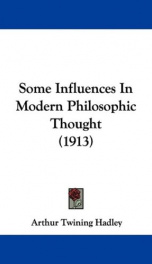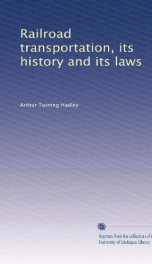undercurrents in american politics

Purchase of this book includes free trial access to www.million-books.com where you can read more than a million books for free. This is an OCR edition with typos. Excerpt from book: as these titles were understood and used in the politics of contemporary European states. The political triumph of democracy was complete. This transformation of the political order was attended by a similar change in the social order; though the social change was for various reasons less rapid and complete than the political one. The society of the West had been from the first quite as democratic as its politics. There was but one important class distinctionthat between workers and idlers. If a settler was willing to work he could get large returns with very little capital; if he was not willing to work there was no place for him. Under such circumstances a man could achieve social position in three ways only: by hospitality, by professional efficiency, or by securing public office. Wealth without hospitality, education without efficiency, honorable descent without public service, were not regarded as social qualifications. They were despised rather than admired. These social standardsor, if you please, this absence of social standardsof the West had a marked effect on the Atlantic coast. Almost every Eastern family numbered among its members one or two who had "gone West"; who had proved their fitness as men under the new conditions, andwere inclined to despise the social order of older communities as artificial. These men were apt to be of a type strong enough to modify the views, not only of their own family circles, but of the whole community from which they came. In the northern Atlantic states this modification was very rapid. In the southern states it was slower. The North had been an aristocracy of small farmers who cultivated their own ground. The South had been an aristocracy of large planters who lived on the produce of the slaves. When members of slave-...
Info about the book
Author:
Series:
Unknown
ISBN:
1112337822
Rating:
2.5/5 (2)Your rating:
0/5
Languge:
English
Users who have this book
Users who want this book
What readers are saying
What do you think? Write your own comment on this book!
write a commentif you like undercurrents in american politics try:
Other books by this author
Do you want to read a book that interests you? It’s EASY!
Create an account and send a request for reading to other users on the Webpage of the book!








